Related Research Articles
The Box is an Australian soap opera that ran on ATV-0 from 11 February 1974 until 11 October 1977 and on 0–10 Network affiliates around Australia.

Violet Helen Carson, OBE was a British actress of radio, stage and television, and a singer and pianist, who had a long and celebrated career as an actress and performer during the early days of BBC Radio, and during the last two decades of her life as the matronly Christian widow, town gossip and elderly battle-axe Ena Sharples in the ITV television soap opera Coronation Street. She was one of the original characters from the series debut in 1960 and would feature in the role for twenty years.
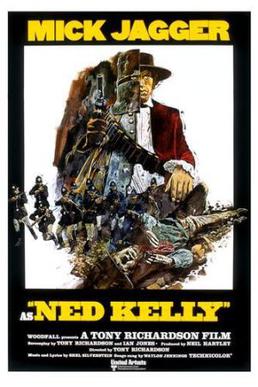
Ned Kelly is a 1970 British-Australian biographical bushranger film. It was the seventh Australian feature film version of the story of 19th-century Australian bushranger Ned Kelly, and is notable for being the first Kelly film to be shot in colour.
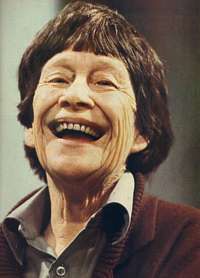
Sheila Mary Florance was an Australian theatre, television and film actress. She played numerous roles in the Crawford Productions before playing Dossie Rumsay in the rural series Bellbird but became best known internationally for her performance as elderly, alcoholic convict Lizzie Birdsworth in the television series Prisoner.
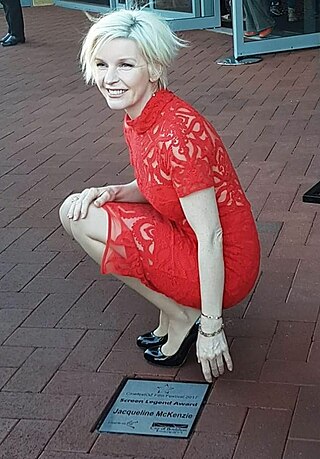
Jacqueline Susan McKenzie is an Australian film and stage actress.
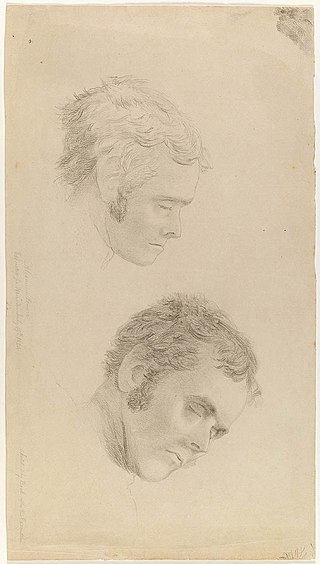
Alexander Pearce was an Irish convict who was transported to the penal colony in Van Diemen's Land, Australia for seven years for theft. He escaped from prison several times, allegedly becoming a cannibal during one of the escapes. In another escape, with one companion, he allegedly killed him and ate him in pieces. He was eventually captured and was hanged in Hobart for murder, before being dissected.

Jekyll & Hyde is a 1990 musical loosely based on the 1886 novella The Strange Case of Dr Jekyll and Mr Hyde by Robert Louis Stevenson. Originally conceived for the stage by Frank Wildhorn and Steve Cuden, it features music by Frank Wildhorn, a book by Leslie Bricusse and lyrics by all of them. After a world premiere run in Houston, Texas, the musical embarked on a national tour of the United States prior to its Broadway debut in 1997. Many international productions in various languages have since been staged including two subsequent North American tours, two tours in the United Kingdom, a concert version, a revamped US tour in 2012, a 2013 Broadway revival featuring Constantine Maroulis, and an Australian concert version in 2019 starring Anthony Warlow.
Norman James Kaye was an Australian actor. He was best known for his roles in the films of director Paul Cox.
Storm Boy is a 1976 Australian drama film based on the 1964 book of the same name by Colin Thiele, about a lonely boy and his pet pelicans living in a coastal wilderness with his reclusive father. It was the third feature film made by the South Australian Film Corporation, and is a highlight of the New Wave of Australian Cinema from the 1970s. The film was financed by SAFC, Seven Network and the Australian Film Commission.

Paulus Henrique Benedictus Cox, known as Paul Cox, was a Dutch-Australian filmmaker who has been recognised as "Australia's most prolific film auteur".
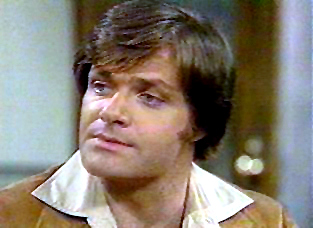
Tony Lord is a fictional character from the American soap opera One Life to Live. The elder child of Victor Lord and brother to heroine Victoria Lord, actor George Reinholt originated the role in April 1975. The character was featured continually through 1979, from 1981 to 1983, and last appeared in episodes in 1987.
Barry Dickins is a prolific Australian playwright, author, artist, actor, educator and journalist, probably best known for his historical dramas and his reminiscences about growing up and living in working class Melbourne. His most well-known work is the award-winning stage play Remember Ronald Ryan, a dramatization of the life and death of Ronald Ryan, the last man executed in Australia. He has also written dramas and comedies about other controversial figures such as poet Sylvia Plath, opera singer Joan Sutherland, criminal Squizzy Taylor, actor Frank Thring, playwright Oscar Wilde and artist Brett Whiteley.

The FJ Holden is a 1977 Australian film directed by Michael Thornhill. The FJ Holden is a snapshot of the life of young teenage men in Bankstown, New South Wales, Australia in the 1970s and deals with the characters' difficulty in reconciling mateship with respect for a girlfriend.
Touch the Sun is a series of television films commissioned by Patricia Edgar for the Australian Children's Television Foundation. It was to be the ACTF's project for the Australian Bicentenary celebrations in 1988. The Australian Bicentennial Authority named Touch the Sun as the Bicentenary official children's series for 1988. Edgar's plan was to locate stories in every state in Australia showing the diversity of the Australian landscape. It was directed, written and produced by some of the top film and tv personnel in Australia. Patricia Edgar was Executive Producer of the show and it was backed by the ABC, Australian Film Commission, the New South Wales Film Corporation, the South Australian Film and Television Financing Fund, the South Australian Film Corporation, Film Victoria and the French distribution company Revcom International. National Trustees agreed to act as investor representatives for Touch the Sun in 1986 and the series was offered to the Australian Television networks for telecast in 1988. The $7.5 million necessary for production of this unique children’s series for the Bicentennial year was fully subscribed by 30 June 1987. The ABC paid $2 million for the Australian rights to Touch the Sun, the most the ABC had ever spent to acquire the rights to a program.

Exile is a 1994 Australian drama film directed by Paul Cox. It was entered into the 44th Berlin International Film Festival. The film was shot entirely on location in Tasmania.
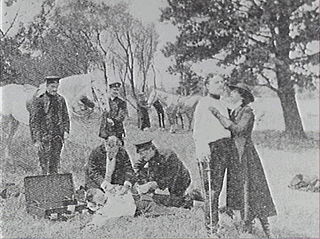
The Midnight Wedding is a 1912 Australian silent film directed by Raymond Longford based on a popular Ruritanian stage play in which Longford had appeared. It is considered a lost film.
Inside Looking Out is a 1977 Australian film directed by Paul Cox. It was his second feature film.

Gabi Hernandez is a fictional character from the American soap opera Days of Our Lives on the NBC network. The role was introduced in 2009, and played by actress Camila Banus since 2010. The role was created by Dena Higley and Christopher Whitesell, and originated by actress Gabriela Rodriguez on November 20, 2009. Banus stepped into the role on October 4, 2010. She exited the role in April 2023, and last appeared in November of the same year.

John Chester Cato was an Australian photographer and teacher. Cato started his career as a commercial photographer and later moved towards fine-art photography and education. Cato spent most of his life in Melbourne, Australia.
Number 96: The Movie is an Australian drama film, released in 1974 and based on the television soap opera of the same title that was then running on the 0-10 network. The film features nearly all the show's regular cast, and was created by the show's creative team, Cash Harmon Productions with the screenplay by David Sale and Johnny Whyte and directed by Peter Benardos and Brian Phillis.
References
- 1 2 David Stratton, The Last New Wave: The Australian Film Revival, Angus & Robertson, 1980 p196
- ↑ Tom Ryan, "Making Silence Speak: Interview with Paul Cox", Cinema Papers, July 1977 p18
- ↑ Andrew Pike and Ross Cooper, Australian Film 1900–1977: A Guide to Feature Film Production, Melbourne: Oxford University Press, 1998, p 299